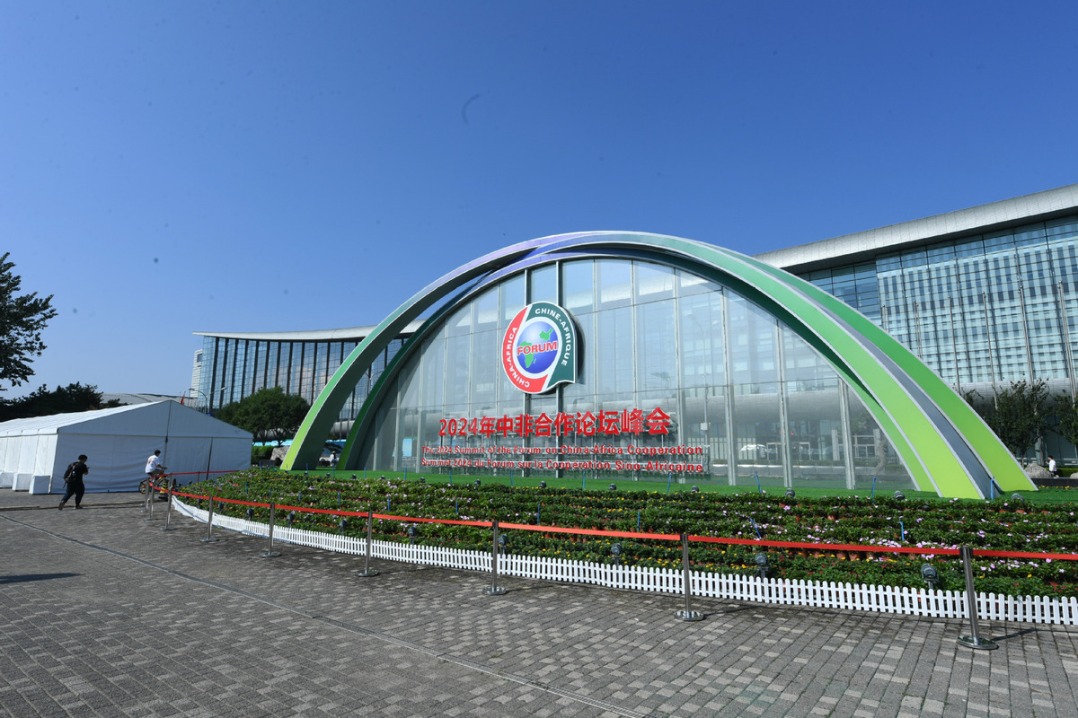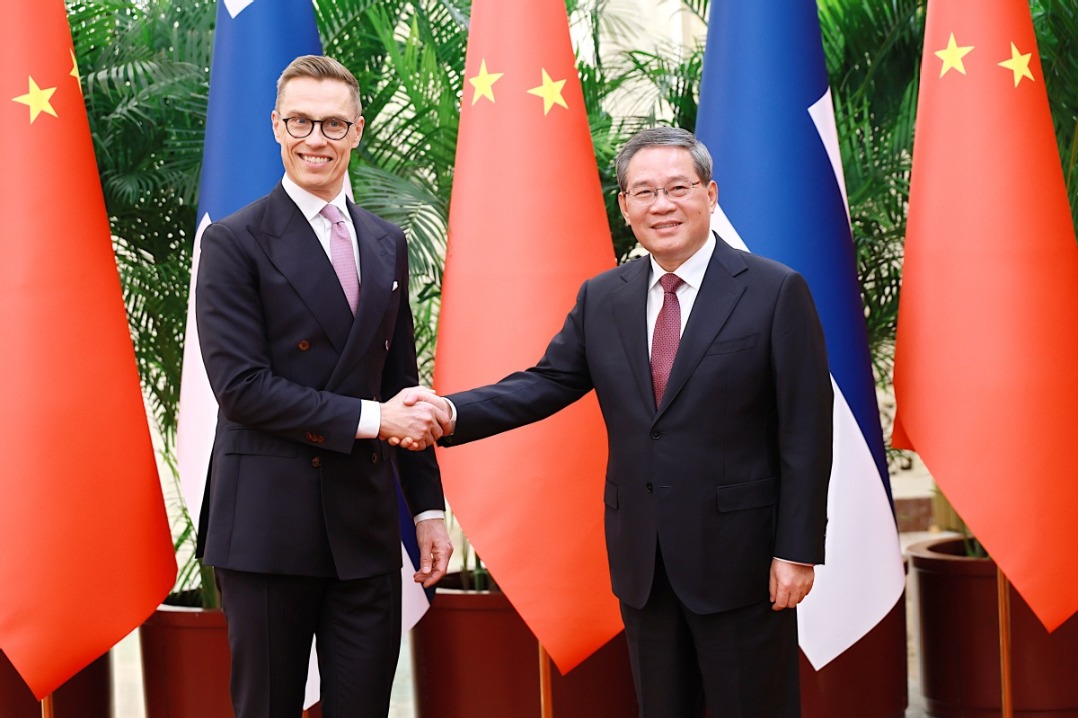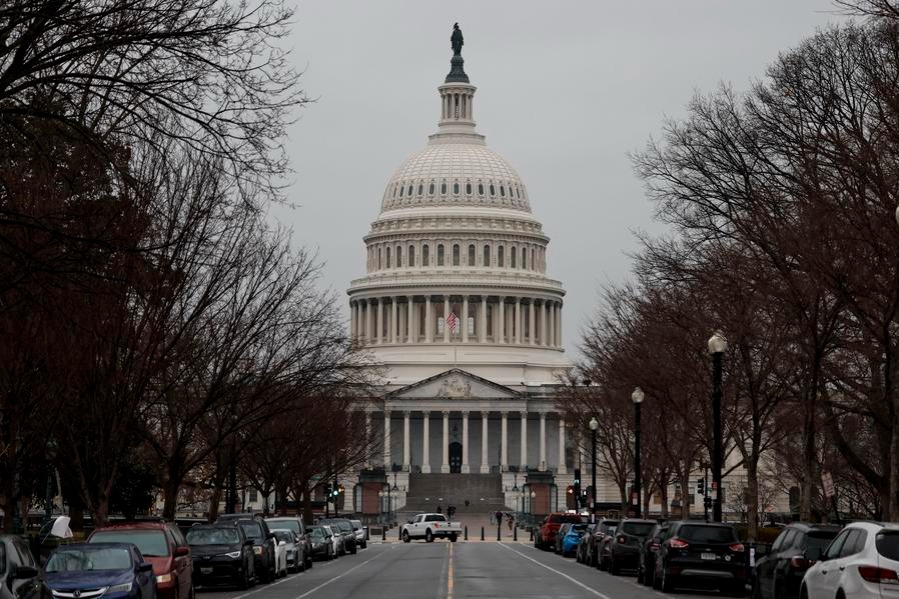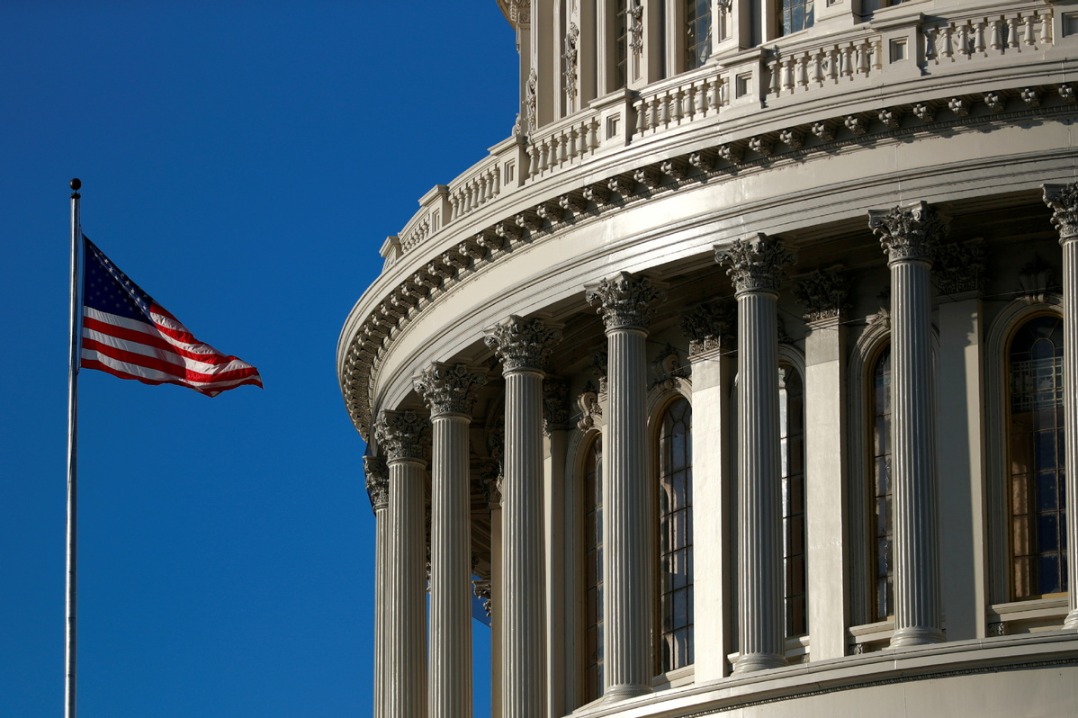Boomerang moves


The Biden administration's imposition of tariff hikes on Chinese goods will end up disrupting US as well as global supply chains
The United States announced additional tariffs on a variety of imports from China, including electric vehicles, lithium batteries, solar cells, critical minerals, semiconductors, steel, aluminum and port cranes on May 14. As China's Foreign Ministry said, the US side has continued its wrongdoing and such a move will have a negative impact on China-US economic and trade relations. In addition, it will adversely affect the US supply chain and disrupt the global supply chain.
When in office, the Donald Trump administration imposed tariffs on around $300 billion worth of Chinese imports on the basis of the so-called Section 301 tariff review. According to analysis on data from the US Census Bureau by Chinese analysis company Sinoimex, from 2017 to 2023, US imports of Chinese goods included in the Section 301 decreased by $51.58 billion, a decline of about 17.3 percent.
The effect of tariff hikes under the Trump administration is mostly felt in a small number of commodities, including communications equipment, computer equipment, televisions and household items. There's an evident drop in the import volume of these products by the US for two reasons. First, the trade volume of these products prior to the tariff hike was relatively large. Second, after the imposition of the additional tariffs, either production of these products moved to other countries (regions) or the US itself expanded the scale of production, thus producing a strong transfer or substitution effect.
Generally speaking, tariffs are imposed on imported products to protect the development of domestic industries. However, the latest tariff hike by the Joe Biden administration cannot play the role.
Take the EV industry as an example. Despite a rapid increase in Chinese auto exports, the export volume to the US market has been quite small.
China exported 4.91 million vehicles in 2023, a jump of 57.9 percent from 2022, with new energy vehicle exports surging by 77.6 percent to 1.2 million units, according to data released by the China Association of Automobile Manufacturers. The export destinations cover over 180 countries across Europe, Asia, Oceania, the Americas and Africa.
The US ranked 14th among China's auto export destinations in 2023, when China exported 74,800 cars to the US, accounting for a meager 1.5 percent of its total car exports. Besides, the vast majority of Chinese auto exports to the US are fuel vehicles. Thus, the latest tariff hike will have little impact on US EV imports and will not help expand the size of the domestic EV market in the US.
Rather, the recent tariff increase will adversely affect the supply chain of US automakers.
The volume of Chinese lithium battery exports to the US has been quite large. In 2023, China's lithium battery exports to the US surged to $13.55 billion, accounting for 20.8 percent of China's total lithium battery exports and making the US the largest single-country export market for Chinese lithium battery makers.
The impact of the recent tariff hike on US lithium battery imports is significantly greater than that on EVs. US automakers have to import a large number of EV parts from China, as China is the world's largest producer of lithium batteries, accounting for over 70 percent of global output. Thus, the tariff increase will have a large impact on the supply chain of US carmakers.
According to the analysis of auto experts, the three top US EV new producers other than Tesla — Rivian, Lucid and Fisker — are all mired in difficulties, with excessive inventory, heavy loss and survival difficulties. The tariff hike will not help expand the market for US domestic carmakers, but rather, will significantly increase their production costs.
The latest tariff hike on Chinese products will also be detrimental to the efficiency of US supply chains.
International shipping is an important part of the global supply chain, and increased tariffs on Chinese products such as port cranes will undermine the efficiency of the shipping industry. With a low level of automation, US ports have lagged behind those in many parts of the world. Congestion at the ports of Los Angeles and Long Beach in 2021 was mainly caused by poor evacuation capacity, which resulted in freight rate hikes, fueling US inflation. China is a major producer of port cranes, with strong international competitiveness in this regard. The newly imposed tariffs will increase the cost of technical renovation and transformation by US ports.
In a nutshell, the Biden administration's tariff hike on Chinese imports violates the basic principles of international division of labor, and such a protectionist move will also hurt US domestic industries.
As a matter of fact, the Biden administration's tariff hike is mostly driven by domestic political concerns. The 2024 US presidential election battle is now set — Biden representing the Democratic Party against Trump representing the Republican Party. Trump imposed tariffs on Chinese exports to the US during his term of office, and has vowed massive new tariffs if he wins this year's election. To undercut the impact of Trump's campaign rhetoric, the Biden administration launched a new round of tariff hikes on Chinese products.
Meanwhile, the recent tariff hike aims to appease US automakers and win over their support, as major US NEV manufacturers are mired in difficulties. But the above-mentioned analysis shows that the move will fail to support the US EV industry.
Besides the political pandering, the Biden administration's tariff hike on Chinese products is ultimately aimed at continuing to contain and suppress China strategically and hindering the development of Chinese industries.
The author is secretary-general of the China Center for International Economic Exchanges. The author contributed this article to China Watch, a think tank powered by China Daily.
The views do not necessarily reflect those of China Daily.
Contact the editor at editor@chinawatch.cn.


































